The appliance mistake that could be adding up to £340 to your energy bills
This is an often-missed energy-saving trick!
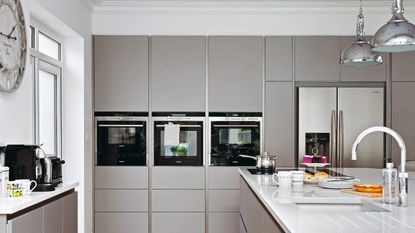
Whether you live in a rental or you own your own home, many of us will be regularly using appliances – be it a washing machine, fridge, kettle or dishwasher – that are older than we might realise.
While most items should be used until they’re at a breaking point (or past that point, if they are able to be fixed and repaired) in order to be as sustainable as possible – there may actually be a serious drawback to using an appliance that’s 'past its best', so to speak.
How an old appliance could be costing you money
You might not realise it, but running an old appliance that you’ve had for years (or maybe even decades) could be adding a decent chunk of money onto your energy bills every month, simply because of how energy efficient it is – or isn’t, as the case may be.
Explaining why an old appliance might not be the best option – especially during the current cost of living crisis – Stephen Hankinson, Managing Director at Electric Radiators Direct said, 'Keeping hold of old washing machines or other appliances that are not as energy efficient as modern alternatives may end up costing you significantly in the long run.
'For instance, running an outdated refrigerator might cost you up to 1,000 kWh per year, which, based on current prices, equates to up to £340. So updating old appliances for newer models, where feasible, could mean a considerable saving in the long run.'
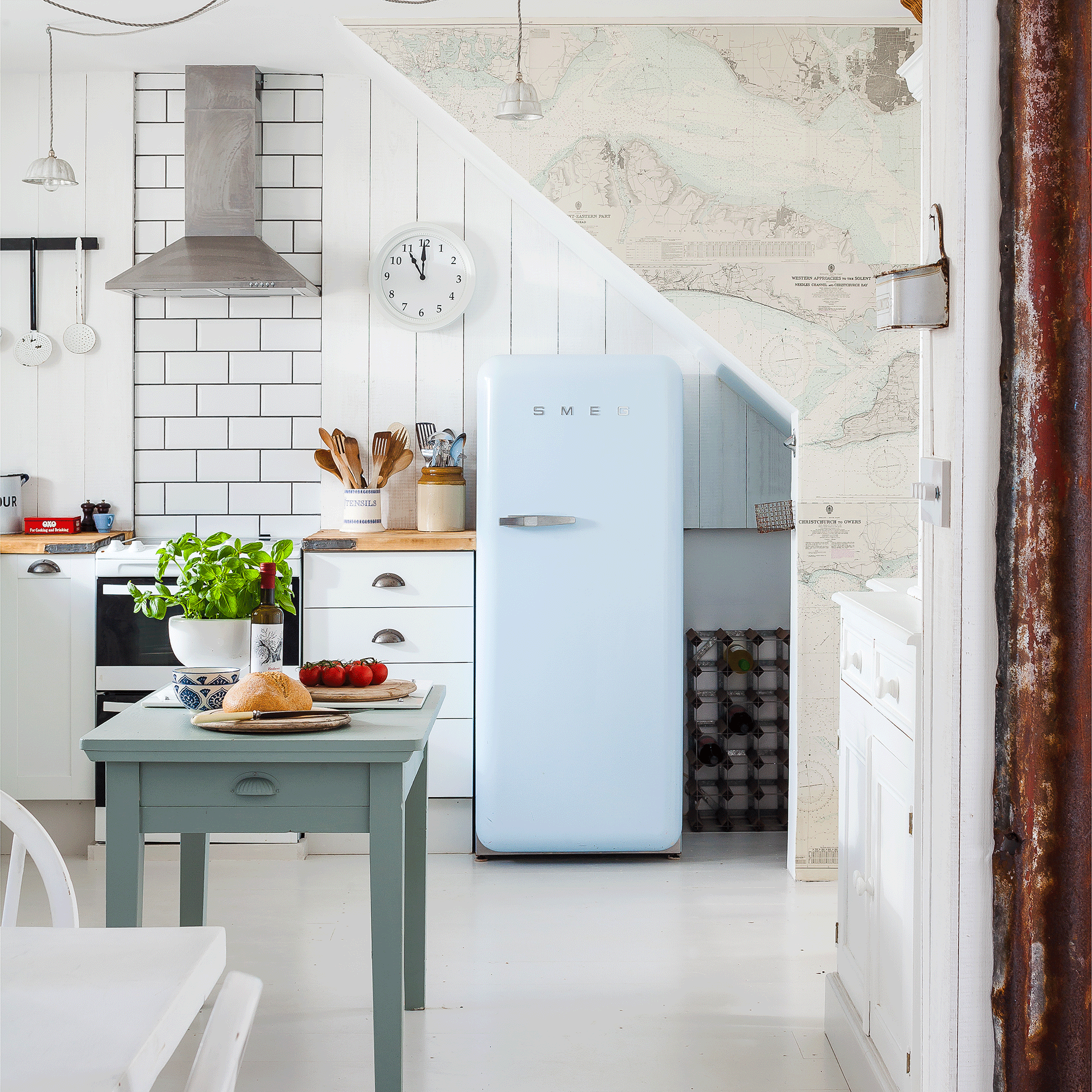
William Hobbs, energy expert at My Job Quote, explained that strides in technology are essentially to blame for the inefficiency of old appliances.
He told us, 'The energy efficiency of appliances around the home has improved dramatically over the recent years – this is mostly due to improved technology, and stricter regulations.'
Get the Ideal Home Newsletter
Sign up to our newsletter for style and decor inspiration, house makeovers, project advice and more.
Based on this, one of the biggest (and most unknown) energy saving tips would be to evaluate how long you’ve had an appliance and switch it out if it's much older than you expect. Of course, however, this is likely only possible if you own your home, and have the initial funds to purchase a new appliance.
If you can though, William explains that it should be well worth it financially, in the long-term. 'It’s worth thinking about the appliances that are constantly running, such as the refrigerator and ones that you use often, like the oven or your TV. Chances are, if you were to purchase newer models, you could find yourself saving hundreds, if not, thousands on the cost to run those appliances during their lifespan.'
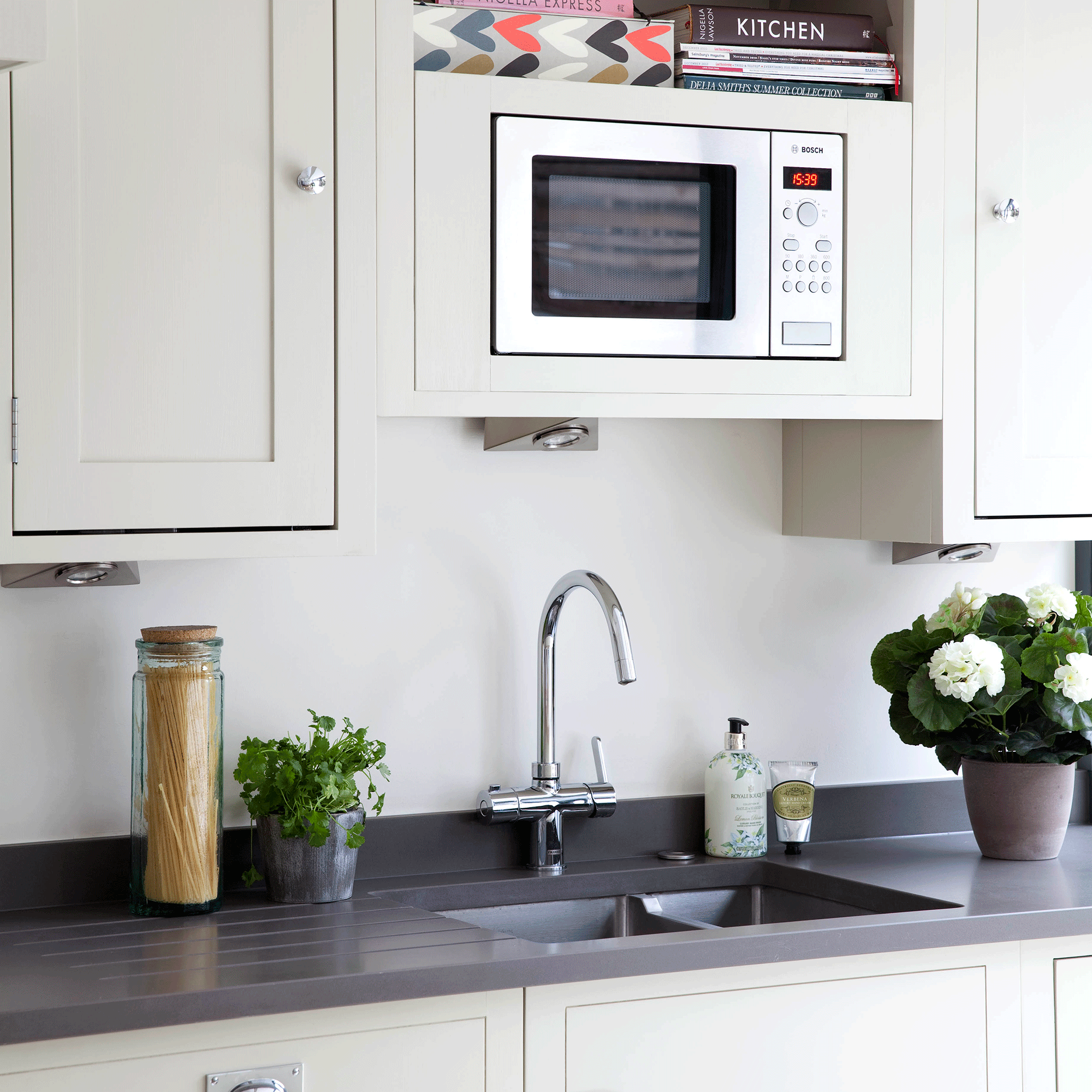
How do you know if your appliance is too old though? Though the lifespan of each appliance varies, William advised that, as an guide, washing machines should be kept for a maximum of 20 years, freezers 10-12 years, microwaves 8-10 years, and toasters, a maximum of six years. Yes, that one surprised us too! For other appliances, he explained that the lifespan is around:
- Dryers: 10-15 years
- Boiler: 12-20 years
- Vacuum cleaner: 7-9 years
- Dishwasher: 7-12 years
So, if you've had your appliance for much longer than that, it may be time to consider a newer option.
When it comes to what to look out for in a new model, Richard explained, 'The most energy-efficient devices on the market, such as washing machines and refrigerator freezers, are those with an appliance rating of A+++.
'You should also be able to check the total number of kWh needed to run each appliance for an entire year on the label when you’re shopping around, which can help you calculate the total costs to run it.'
Amy Hunt is an experienced digital journalist and editor, now working in a freelance capacity specialising in homes and interiors, wellness, travel and careers. She was previously Lifestyle Editor at woman&home, overseeing the homes, books and features sections of the website. Having worked in the industry for over eight years, she has contributed to a range of publications including Ideal Home, Livingetc, T3,Goodto, Woman, Woman’s Own, and Red magazine.
-
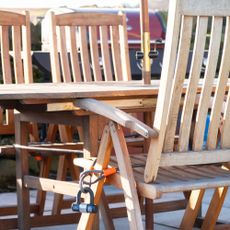 Worried about protecting your garden this summer? Here’s how a bespoke security kit can help
Worried about protecting your garden this summer? Here’s how a bespoke security kit can helpKeep your garden safe with the help of BURG-WÄCHTER.
By Sponsored
-
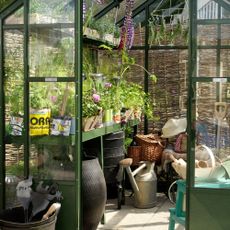 How to clean garden tools - Top tips to keep your hand tools and trusty lawn mower in check
How to clean garden tools - Top tips to keep your hand tools and trusty lawn mower in checkYes, you really do need to clean your watering can
By Lauren Bradbury
-
 We try De'Longhi's latest superstar bean-to-cup coffee machine
We try De'Longhi's latest superstar bean-to-cup coffee machineThis bean-to-cup coffee machine could curb your habit of buying iced lattes forever.
By Helen McCue